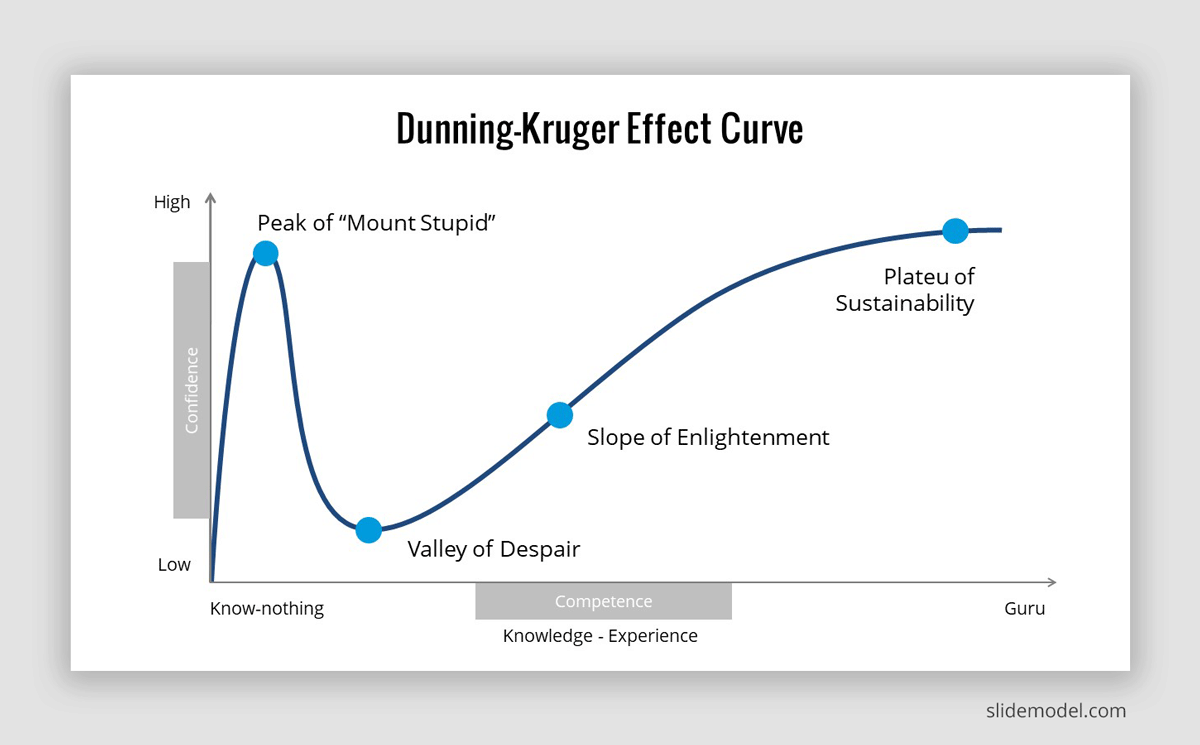
Did you ever want to know why you can’t fix stupid?
For years I have been puzzled by the pervasive nonsense I see in politics regarding our clear raping of the planet, most egregiously amplified by recent suggestions that we mine the seafloor. What is wrong with these people?
Well, here is a video that explains it: Dunning-Krueger Effect Explained
We have the perfect storm of Arrogance and Ignorance (AI) that previous blogs have mentioned is what AI really stands for. Couple that with the fact that social media has replaced the peer review process and anyone can publish their nonsense, idiots get reinforcement confirming almost any conclusion they reach.
Please watch this video and decide where you stand. Are you part of the problem or part of the solution? I fear the most vocal today are largely the problem and the movie Idiocracy is becoming a reality … smart people are having fewer children than dumber ones, so the average IQ is dropping.
There are signs of hope, and it can’t come too soon. Many scientists and engineers are now correcting some of the superficially appealing notions and trying to develop sustainable energy strategies. We do have professionals who have repeatedly pointed out that the emperor is nude, like Dr. Katherine Johnson with her insightful weekly postings. And, as the short article reposted at the end of this blog, there may be a turnaround on some issues.
But we are outnumbered by the dominant ignorant publishing that most read or watch, which they then spout as truth. Plus, we all seem far too tolerant of the increasing abuse of our planet. Have any of you looked at how we ship goods around the planet? Do you really think these shipments are all about food and shelter that can’t be provided locally? Haven’t we considered possibly relocating people to be symbiotic with their local environment? One of many positive consequences of the current trade war is that it may sort some of this out as each country evaluates whether they need to import vs. make or grow it locally.
No, we build skyscrapers where nothing grows and malls with ski slopes to prove we can. We produce and then scrap cars when we can no longer find spare parts or don’t like the styling, rather than build them for long-term use. Or perhaps the most ludicrous is burning fuel moving water (H2O) all around the world in bottles made of polyethylene terephthalate (PET), a plastic derived from crude oil.
But why stop there? How outrageous is it that we are told by politicians that we are going to replace the internal combustion engine with renewables by 2030 or 2050? Sure, all those 18-wheelers you see on the Interstate are going to run on renewables, plus all the airplanes and ships. If you think that possible, check out these websites to see how many planes and ships (Ships) must be converted … this is Not happening any time soon.
We need to step back from the abyss we face, rethink our strategies, mend our fences, forgive one another, and start thinking clearly about our choices. Otherwise, we are heading full speed into worldwide chaos as we allow China to deplete our oceans’ fish, let EV and PV manufacturers rape the planet while killing innocent children sent to mine the needed rare earth minerals, and then pat ourselves on the back with such ridiculous ideas as sustainable renewable aviation fuels.
Sustainable aviation fuel plans under fire over crop emissions
By Jim Giles May 5, 2025
Scaling the use of sustainable aviation fuel (SAF) made from corn and soybeans is the focus of U.S. plans to decarbonize aviation, but researchers at the World Resources Institute are urging a rethink.
-
- The U.S. produces around just 1 percent of the quantity of SAF needed to hit a government target of 3 billion gallons of domestic production by 2030, according to the Department of Energy.
-
- But when land-use change is considered, corn and soybean-based SAF creates more emissions than fossil jet fuel, the WRI concluded in a report released last week.
-
- The crops “are not a viable strategy for decarbonizing aviation,” said Audrey Denvir, a WRI research associate and author on the report.
Industry figures questioned key details of the analysis.
“Context is everything,” said Adam Klauber, who oversees sustainability and digital supply chains at World Energy, a SAF producer. Klauber argued that the WRI analysis relied on global averages for the impacts of biofuel crops and overlooked the higher performance of crops grown in the U.S. In a new report, the WRI team argues that when a more holistic approach is used to assess SAF production, two crops that are essential to scaling supply — corn and soy — are found to create more emissions than conventional fossil fuels.
The crops “are not a viable strategy for decarbonizing aviation,” said Audrey Denvir, a WRI research associate and an author of the report. SAF advocates disputed the report’s conclusions, saying the researchers failed to distinguish between global averages and data on more sustainable biofuel crops grown in the U.S.